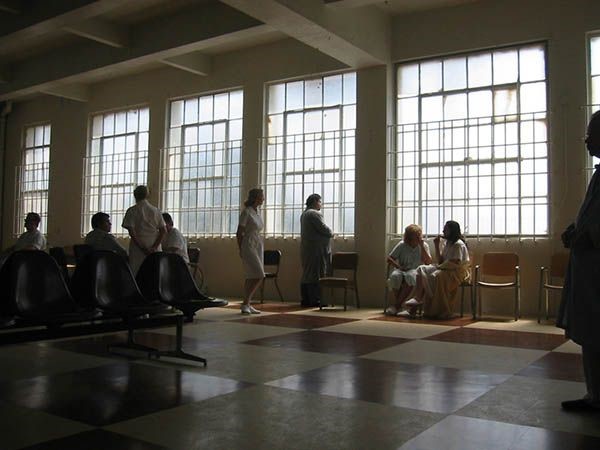Written by: Emily Evans
Be honest – have you ever found it difficult to apologise? It could range from not wanting to admit a mistake, to refusing to admit you were wrong to a friend because it’s so awkward. And whilst apologising can be awkward and uncomfortable in the moment, the long-term benefits always outweigh the emotional discomfort in the moment. But why do we find it so uncomfortable to apologise, even though we understand that the pros will usually outweigh the cons in the long-term?
The biggest factor is usually that apologising puts us in a place of emotional vulnerability. We’re giving power back to the person that we’re apologising to, and that puts us in a less powerful position. We’re asking people, usually people we care about, for forgiveness, knowing that we could be rejected – not an empowering position to be in. Psychologically, it temporarily lowers our self-esteem, because firstly, we’re feeling public shame for something we’ve done that we acknowledge secondly, for an apology to be genuine, you’ve got to admit to yourself and the other person that you’ve done something wrong. Often, the feeling of embarrassment of having done this action is a factor in making apologies feel uncomfortable; however, the emotional discomfort of admitting our mistakes – for the reasons mentioned above- is also a major factor.
Some of this discomfort is evolutionary. We naturally want to feel part of a ‘pack’, or ‘group’, which is the result of strong and stable bonds, and admitting mistakes makes us feel vulnerable in a way that undermines those bonds. We feel reluctant to expose ourselves for having done something wrong, because it makes us less secure in our social standing. And those feelings aren’t all down to evolution – it’s almost acknowledged that most people will experience some sort of social insecurity in their lives, and apologies can be an easy place for these feelings to arise.
However, on the flip side, we’ve got to be concious of over-apologising; always taking the blame, even when it’s not your fault, as a way to ensure that you stay on people’s good side. This can have a serious effect on your self-esteem and mental wellbeing, as you can fall into a pattern of constantly blaming yourself for other people’s mistakes. But, this is different to apologising when you aknowledge that you’ve made a mistake.
But, whist it can be difficult to apologise, the alternative, just brazening out the storm and hoping everything will pass – often leads to tensions in relationships that make things a little bit more uncomfortable. In marriage counselling, for instance, couples are told to discuss their problems, rather than cover them up. Psychologists often reference the ‘skill’ of having uncomfortable conversations; yes, they’re awkward in the moment, but they’re better in the long-run.
And like the ‘skill’ of uncomfortable conversations, apologies are also a ‘skill’ that people learn over time. Think about the most recent apology you’ve said, and the first one you can remember doing in primary school. You are most likely better at communicating your feelings recently than you were when you were younger. That’s because apologising better is part of maturing. It’s like a skill that you gain along the way – like working with challenging people, or empathy. It doesn’t matter how many how-to articles or self-help books you read; it’s a skill that comes with practice, reflection, and a willingness to try. But a big part of it is putting your ego aside, accepting the fact that you will feel uncomfortable emotions when apologising, but acknowledging that your relationships come before the feelings of pride and self-preservation that stop you from wanting to avoid those feelings. Additionally, it’s important not to instantly expect forgiveness – sometimes, for difficult issues, it may
take time. But relationships are defined both by how we recover from our lowest points, as well as how good things are at the highest ones.
To summarise, whilst apologising isn’t something anyone really enjoys doing, it’s an important life skill to have. We shouldn’t feel shame, or weakness, in apologising. It’s a testament to how much you care about the relationship, that you’re willing to be emotionally vulnerable with each other.


 When someone says asylum in the context of psychology, what do you immediately think of? I can safely assume most readers are picturing haunted Victorian buildings, animalistic patients rocking in corners and scenes of general inhumanity and cruelty. However, asylum has another meaning in our culture. Asylum, when referring to refugees, can mean sanctuary, hope and care. Increasingly people are exploring this original concept of asylum, and whether we, in a time when mental illness is more prevalent than ever, can reclaim the asylum? Or is it, and institutional in general, confined to history?
When someone says asylum in the context of psychology, what do you immediately think of? I can safely assume most readers are picturing haunted Victorian buildings, animalistic patients rocking in corners and scenes of general inhumanity and cruelty. However, asylum has another meaning in our culture. Asylum, when referring to refugees, can mean sanctuary, hope and care. Increasingly people are exploring this original concept of asylum, and whether we, in a time when mental illness is more prevalent than ever, can reclaim the asylum? Or is it, and institutional in general, confined to history?